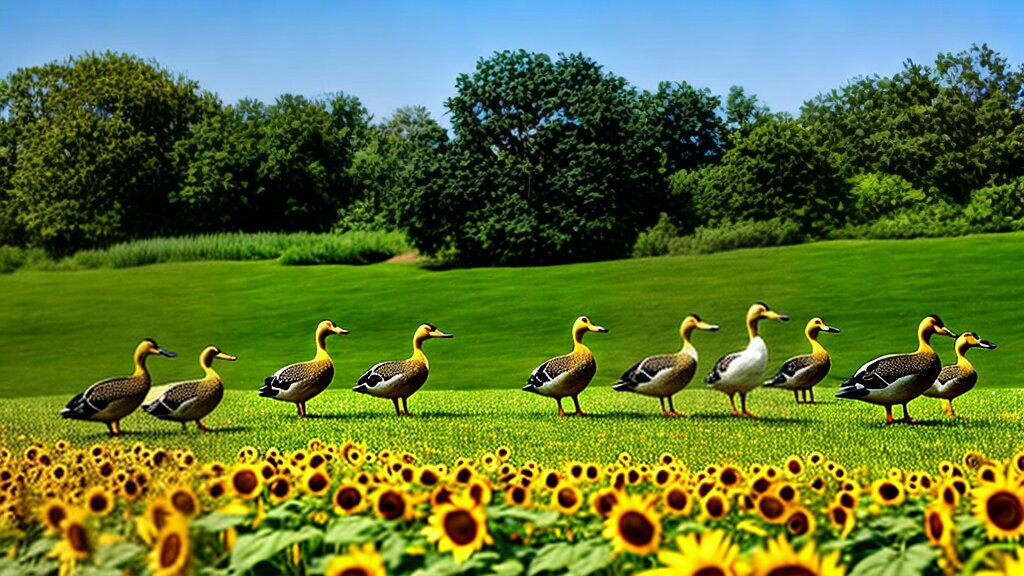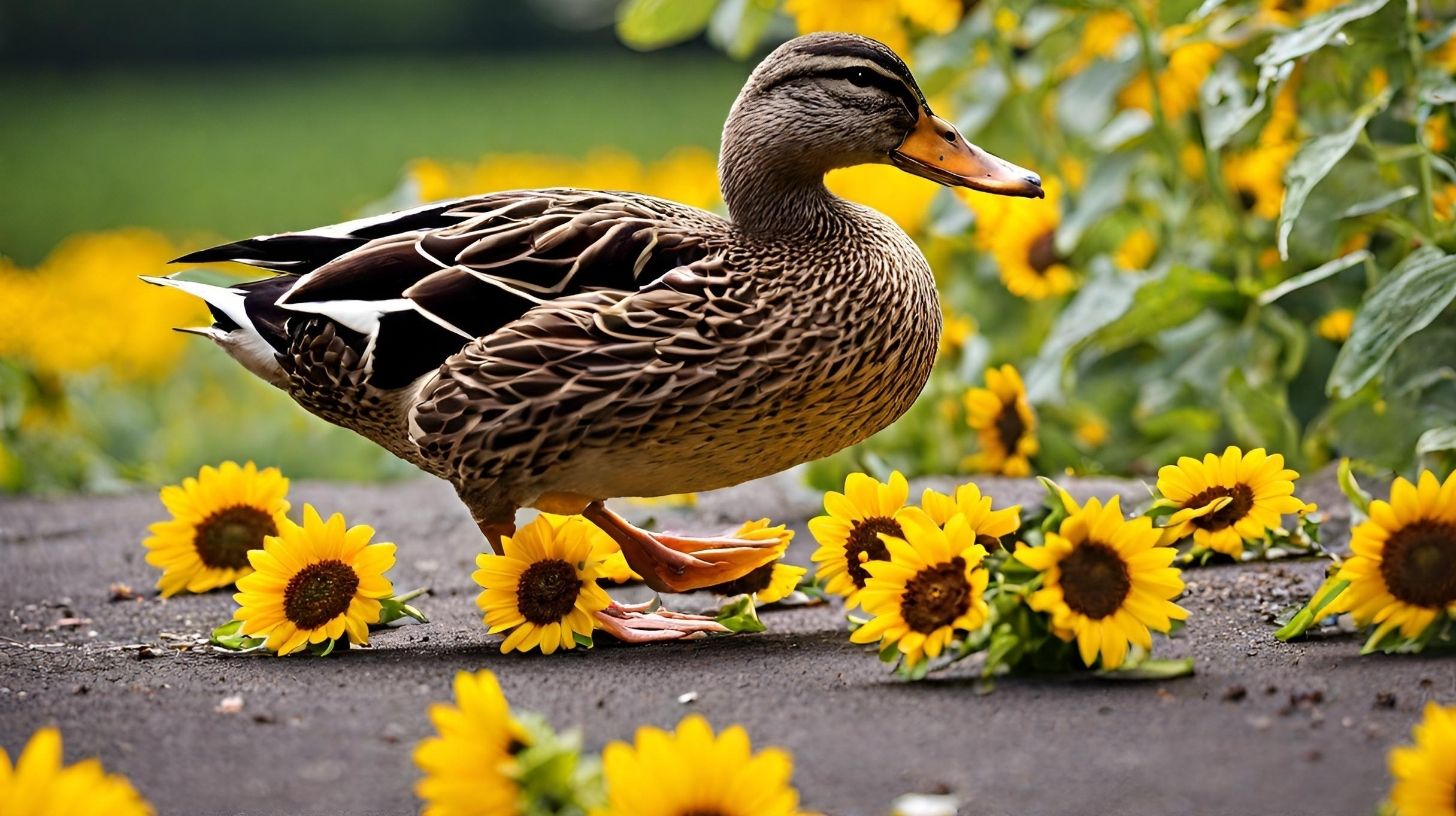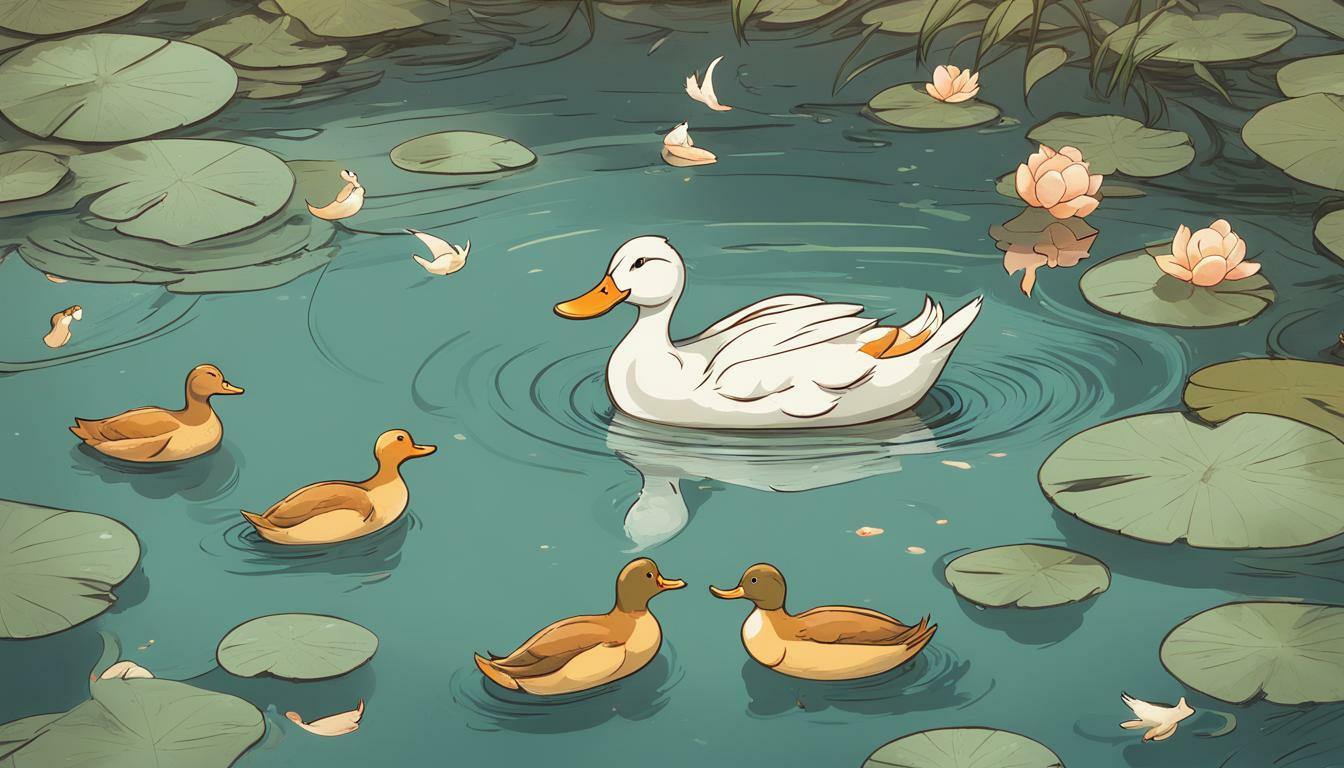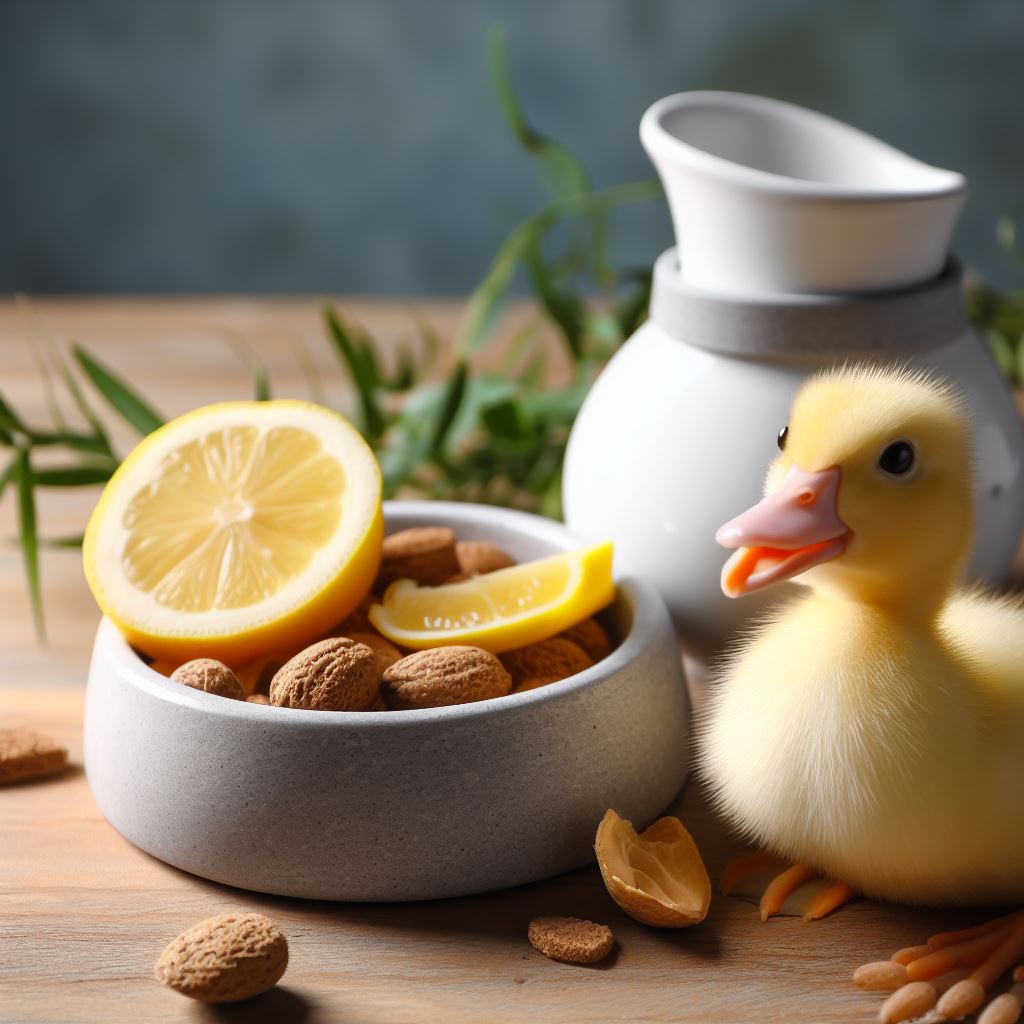Can Ducks Eat Sunflower Seeds?

Table of content:
Sunflower seeds are a common sight at parks and ponds where ducks live. These small, nutritious seeds are readily gobbled up by all types of birds. But can ducks eat sunflower seeds too? Are these seeds safe and healthy for ducks to eat?
To understand if sunflower seeds are appropriate for ducks, it helps to first look at what ducks naturally eat. There are around 120 different species of ducks in the world. Most live in wetland habitats like ponds, marshes, lakes, and rivers.
A duck’s diet can vary based on its environment but typically consists of aquatic plants, grasses, fruits, seeds, grains, algae, small fish, tadpoles, aquatic insects, and other invertebrates. Mallard ducks, one of the most common duck species, are omnivorous – meaning they eat both plant and animal matter.
Nutritional Profile of Sunflower Seeds
Now that we know more about a duck’s typical diet, let’s look at the nutritional makeup of sunflower seeds.
The sunflower seeds sold for human consumption are usually hulled, meaning the outer shell has been removed. Whole sunflower seeds with the shell still on are most often used as bird feed.
Sunflower seeds are very high in fat, providing 51g per 100g of seeds. This fat is mostly monounsaturated and polyunsaturated fatty acids, which are considered healthy forms of dietary fat.
Sunflower seeds are also a great source of protein, providing 21g per 100g of seeds. They contain good amounts of B vitamins, vitamin E, magnesium, phosphorus, manganese, selenium, iron, calcium, zinc, and copper.
Compared to commercial duck feeds, sunflower seeds are lower in protein and some minerals, but higher in overall fat content. The small size and hard shell can also pose potential choking hazards for ducks.
Benefits of Feeding Ducks Sunflower Seeds
Sunflower seeds can make a nutritious supplemental treat for ducks in moderation. Here are some of the benefits of adding sunflower seeds to a duck’s diet:
- Additional protein – Sunflower seeds provide a hearty dose of plant-based protein to help ducks maintain muscle mass and meet their daily protein needs.
- Healthy fats – The mono- and polyunsaturated fats in sunflower seeds provide ducks with concentrated energy in a small package. This helps fuel their active lifestyle.
- Fiber – The digestible fiber in sunflower seed shells can aid digestion and keep a duck’s digestive tract healthy.
- Vitamins and minerals – Sunflower seeds contain lots of great micronutrients like vitamin E, magnesium, and manganese to help maintain good health.
- Variety – Adding sunflower seeds can add variety to a duck’s diet and allow them to forage as they would naturally in the wild.
- Taste and texture – Ducks seem to genuinely enjoy the flavor of sunflower seeds. The crunchy texture is also stimulatory.
Potential Risks of Feeding Ducks Sunflower Seeds
While sunflower seeds can be a healthy treat, overdoing it can cause some potential downsides for ducks:
- Choking hazard – Sunflower seed shells, especially whole seeds with shells, can pose a choking risk for ducks. Crushed or chopped seeds are safer.
- Digestive issues – Too many sunflower seeds could lead to diarrhea, gastrointestinal blockages, or vitamin and mineral deficiencies if they crowd out other important foods.
- Obesity – Sunflower seeds are very high in fat and calories. Overfeeding could contribute to obesity, fatty liver disease, and heart problems in ducks. Moderation is key.
- Angel wing deformity – An excess of proteins and calories from sunflower seeds in young ducklings may contribute to an angel wing, a deformity of the wing joints that impairs flight.
- Salt toxicity – Salted sunflower seeds should be avoided, as excess salt can poison ducks. Even a small amount can be dangerous to their health.
So while sunflower seeds can be a healthy supplemental food, moderation is important to avoid potential downsides. Follow feeding guidelines to provide ducks with sunflower seeds safely.
Guidelines for Feeding Ducks Sunflower Seeds
Follow these tips to responsibly feed sunflower seeds to ducks:
- Choose unsalted, raw sunflower seeds to avoid excess salt and sodium.
- Look for black oil sunflower seeds or hulled sunflower seeds instead of shells, which are harder to digest.
- Limit sunflower seeds to 5-10% of the total diet. They should be an occasional treat, not a dietary staple.
- Crush shells into small pieces for easier digestion. Duck gizzards can crush them, but crushed seeds are safer.
- Mix sunflower seeds with the duck’s regular food instead of offering seeds alone. This prevents the overconsumption of seeds.
- Feed sunflower seeds in moderation of 1-2 tablespoons per duck per day for optimal health benefits.
- Spread seeds out over a wide area instead of dumping piles in one place to prevent gorging.
- Offer seeds in the morning, then remove uneaten portions at night to avoid rodents.
Following these tips will allow ducks to safely enjoy sunflower seeds as part of a balanced diet without risking health problems.
Special Considerations for Baby Ducks
Extra precautions should be taken when feeding sunflower seeds to ducklings. Young ducks under 6 months old have special nutritional requirements and a higher risk of developing metabolic bone disease from nutritional imbalances.
Here are some key points for feeding sunflower seeds to baby ducks:
- Wait until ducklings are at least 3-4 weeks old before offering any treats like sunflower seeds. Their digestive system needs time to mature.
- Feed baby ducks a commercial duckling starter feed as their dietary staple to make sure they get adequate nutrition.
- Use crushed sunflower seeds, chopping shells into very small pieces to reduce choking risk.
- Mix crushed sunflower seeds into the duckling food in very small amounts – just a few pieces per feeding.
- Only feed sunflower seeds once or twice a week to ducklings under 3 months old. Their main diet should be complete duckling feed.
Following these precautions will help raise healthy baby ducks while still allowing them to enjoy small sunflower seed treats. As they mature, the amount can be slowly increased while monitoring their health.
In conclusion: Can Ducks Eat Sunflower Seeds?
In conclusion, ducks most certainly can eat sunflower seeds in moderation as part of a balanced diet. Sunflower seeds offer protein, healthy fats, and nutrients as an occasional treat. But they should not become a diet staple or make up more than a small portion of a duck’s intake.
With some common sense precautions to watch portion size, crush shells, avoid salt, and mix with regular feed, sunflower seeds can provide ducks with enjoyment, foraging enrichment, and nutritional variety. Both adult and baby ducks can benefit from this yummy, nutritious snack when fed responsibly.
So next time you’re at the pond feeding the local ducks, feel free to throw in some healthy sunflower seeds to supplement their diet! Just be sure to follow feeding guidelines to keep your duck friends happy and healthy.
Welcome. I’m Adreena Shanum, the proud owner of this website, and I am incredibly passionate about animals, especially poultry. I founded adreenapets.com as a labor of love, stemming from my desire to share my knowledge and experiences with poultry enthusiasts worldwide.




